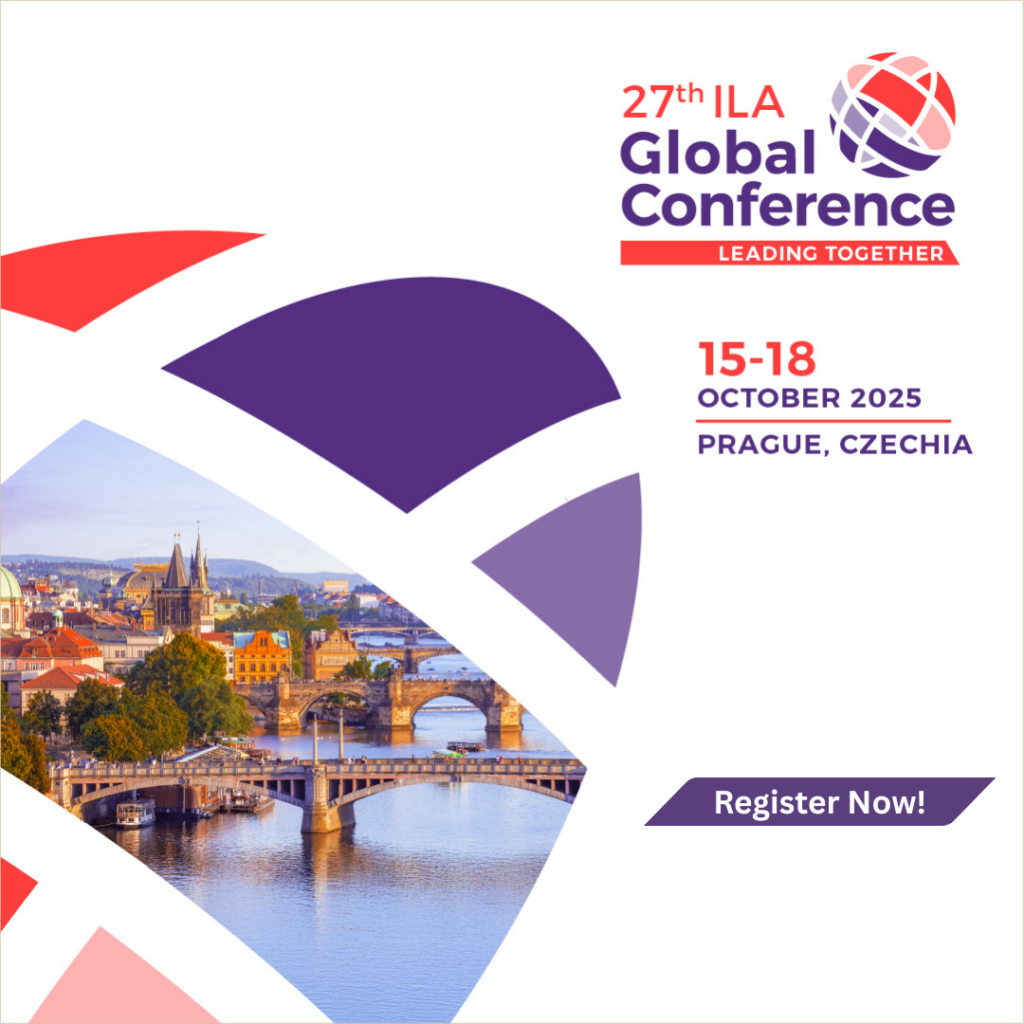
- 20 July 2023
Share:
Barbara Kellerman on Followership
Part 1. July 4, 2023 – Leadership and Followership in America
Originally published 3 July 2023
David Brooks is an estimable columnist who can regularly be read in the New York Times. A few days ago, he penned a piece titled, “Why Biden Isn’t Getting the Credit He Deserves.” Brooks (2023) pointed out that by most measures the American economy is thriving and that the policies of President Joe Biden deserve much if not most of the credit. But, while “Americans should be celebrating,” Brooks wrote, most are not. Instead of acknowledging the country’s successes, 74 percent of the American people say it’s on the wrong track. And instead of acknowledging the president’s successes, his approval ratings have been stuck for a year at a “perilously low” 43 percent.
Brooks asks why this is — why the American people are so reluctant to take pleasure in their good fortune and to give credit where credit is due. Partly, he writes, it’s because of inflation — a few key prices are obviously higher than they were three years ago. And partly it’s the media — now in the habit of stoking anger and fear. But in the main, Brooks writes, the problem is our “national psychology.” He concludes that during “the Trump era we have suffered a collective moral injury and a collective loss of confidence, a loss of faith in ourselves as a nation.”
Far be it from me to argue that since Donald Trump entered politics in 2015, our discourse has not been increasingly debased and our disposition increasingly depressed. But to blame a single individual for what’s gone wrong is both antihistorical and devoid of contextual consciousness.
The Trajectory of History
That followers in liberal democracies should criticize and even condemn their leaders is entirely in keeping with what has been, at least since the Enlightenment, the historical trend. Patterns of dominance and deference change over time: In the West they have in the last several centuries, and even more in the last several decades, resulted in leaders who are weaker and followers who are stronger.
While this trend ebbs and flows in fits and starts, overall, it’s unmistakable. As I wrote in The End of Leadership (2012), “there is less respect for authority across the board [than there used to be] – in government and business, in the academy and in the professions, even in religion. Power and influence have continued to devolve from the top down – those at the top having less power and influence; those in the middle and at the bottom having more. For their part, followers, ordinary people, have an [ever] expanding sense of entitlement – demanding more and giving less” (pp. xviii-xix).
There are two primary reasons for this shift. The first is changes in technology, beginning at least with the printing press and ending (for the moment) with social media. The second is changes in culture, in which those without authority have increasingly less compunction about taking on those who have it.
The Consequence of Context
Brooks ignores an inconvenient truth: that what is happening in the United States is not unique to the United States. Other liberal democracies are suffering the same crisis of faith — faith that their democratic system of government can deliver what it seems on the surface to promise. Not only the pursuit of happiness but happiness itself.
France has been riven with strife off and on for years, most dramatically this year. First, for months on end the country was racked with large and deeply disruptive protests over President Emmanuel Macron’s determination to push through pension reform. Now, in the last week, there have been riots in the streets, looting and burning in cities and suburbs, in response to the fatal police shooting of a 17-year-old of Algerian descent. As of this writing, there have been six nights of extreme unrest, to which some 45,000 police and gendarmes have been summoned to respond.
A week ago, in Germany, was the first ever electoral victory at the district level of a member of the far-right populist party, the Alternative for Germany (AfD). Now, seven days later, AfD has the first ever electoral victory at the mayoral level. No one is suggesting the AfD poses a serious threat to the centrist government of Chancellor Olaf Scholz. Still, the 10-year-old party has been polling up to 20% in recent surveys. Additionally, the AfD is now considered a durable force in German politics, reflecting widespread divisiveness over, especially though not exclusively, the issue of immigration.
Rishi Sunak is the latest in an impressive series of British Prime Ministers — remember Liz Truss? — whose brief tenures have been riven with division and disapproval. Dissatisfaction with the government continues to increase — it’s now at record levels with approximately 80% of Britons registering chronic dissatisfaction. Additionally, the British electorate is suffering from a severe and so far, incurable case of buyer’s remorse. They deeply regret their monumental decision to opt for Brexit, to quit the European Union, with four out of five Britons now saying they want closer ties to Europe.
Then there is Israel, touted for over a half century as the only democracy in the Middle East and as America’s only reliable ally in the region. Now where is it? Israel’s Prime Minister Benjamin Netanyahu is on trial, defending himself against charges including fraud, bribery, and breach of trust. Israel is being sundered by Netanyahu’s attempt to overhaul massively the country’s judicial system. And now, there is a serious split in Israeli’s right-wing government over how hard, if at all, to crack down on Jewish extremists, especially settlers who attack Palestinian villages. The long-touted so-called two-state solution seems dead as the proverbial doornail — an impression reinforced again today, when Israel launched its biggest airstrike on an area in the West Bank in two decades. This leaves the one-state solution which is, so far as anyone can now tell, no solution at all.
On this July 4th weekend then the United States is by no means alone. Whatever it is that ails the American people is not a disease for which any single individual is responsible. Rather it reflects the temper of the times in which democracy itself gives us not only permission to want more — but to demand more than what we already have.
References
Brooks, D. (2023, June 29). Why Biden Isn’t Getting the Credit He Deserves. New York Times. https://www.nytimes.com/2023/06/29/opinion/biden-economy-inflation-plan.html
Kellerman, B. (2012). The End of Leadership. Harper Business.
Barbara Kellerman on Followership
Part 2. Vladimir Kara-Murza – A Diehard
Originally published 18 April 2023
President Vladimir Putin now presides over a country and culture of terror. I write “now” because he was not always intent on strangling every voice in opposition. Not that he was ever a liberal democrat. But Putin during his early years in power was far less repressive and despotic than he is now — especially since the start of Putin’s War.
Two weeks ago, Russian authorities arrested and imprisoned a prominent American reporter for the Wall Street Journal, Evan Gershkovich. And twenty-four hours ago, a Russian court sentenced a prominent Russian dissident, Vladimir Kara-Murza, to twenty-five years in prison. For telling the truth as he saw it — specifically for criticizing Putin’s war against Ukraine — Kara-Murza was found guilty of treason. Immediately he was sentenced to the harshest punishment for opposing the government that Russia has imposed in decades.
Like Alexei Navalny — Russia’s most prominent dissident — Kara-Murza has been not just imprisoned but poisoned. And like Navalny, Kara-Murza can be seen in one of several ways. As a fearless follower, or as a holy fool. As a leader who will in time be seen as ahead of his time, or as a misguided martyr who suffered was for nothing.
We cannot know how history will judge. What we can know though is this. That the only power Kara-Murza has is the power of his pen. That the only authority Kara-Murza has is his moral authority. He is, in other words, entirely devoid of either the power or the authority to determine his own fate. To be sure, because of his daring dissent he has important allies, such as the Washington Post, for whom he has been an occasional columnist. But Kara-Murza himself has no agency. For the moment he is the ultimate, consummate follower, completely at the mercy of his leader, President Putin.
Notwithstanding his devastating sentence, Kara-Murza continues to embrace the part he has chosen to play. “Not only do I not repent of any of this,” he recently said, “I am proud of it” (2023, April 10). And in the immediate wake of his sentencing his mantra remained the same: “My self-esteem has even risen. I realized that I have done everything right as a citizen and politician” (Dixon, 2023).
In my book, Followership, I identified five different types of followers, one of which was the Diehard. Here is how I defined the type:
“Diehards are as their name implies – prepared to die if necessary for their cause, whether an individual, or an idea, or both. Diehards are deeply devoted to their leaders; or, in contrast, they are ready to remove them from their positions of power, authority, and influence by any means necessary. In either case, Diehards are defined by their dedication, including their willingness to risk life and limb. Being a Diehard is all-consuming. It is who you are. It determines what you do” (p.92).
Kara-Murza is the quintessential Diehard. If necessary, he will die hard for the cause in which he believes. If necessary, he will die hard trying to depose the man who for one year has controlled his every breath.
References
Dixon, R. (2023, April 17). Russia Sentences Kara-Murza, Putin Critic and Post Contributor, to 25 Years. Washington Post. https://www.washingtonpost.com/world/2023/04/17/vladimir-kara-murza-treason-sentence/
Kara-Murza, V. (2023, April 10). Vladimir Kara-Murza’s Last Statement to Russian Court: A Reckoning Will Come. Washington Post. https://www.washingtonpost.com/opinions/2023/04/10/vladimir-kara-murza-final-statement-court/
Barbara Kellerman on Followership
Part 3. Follower Fodder/Follower Power
Originally published 15 February 2023
Followers, as I define them, have little or no power, authority, or influence. This in contrast to leaders who have visibly more power, authority and/or influence.
This definition of “follower” has several advantages, one of which is to make apparent that while people with no power, authority, or influence usually follow their leaders, they do not always follow their leaders. Sometimes followers defy their leaders, refusing to go along with what they want and intend. It’s why followers matter. They matter because leaders cannot count on them, always, automatically, to follow.
Below are examples of what I mean. The first is of followers who are following their leader. The second is of followers who are not following their leader — they are refusing to go along.
Follower Fodder
I use the term “follower fodder” quite literally — for these followers are cannon fodder. They are Putin’s soldiers, men who by all accounts are being used by the Russian military as “storm troops.” They are targets deliberately intended to draw fire to identify where the enemy, Ukrainian soldiers, is located. In other words, on the orders of their superiors these troops are throwing themselves deliberately and directly into harm’s way.
Given Russia lacks the hardware necessary to guarantee a victory over Ukraine, Putin is relying on overwhelming manpower to accomplish his war aims. Most of Russia’s conscripts are inexperienced, poorly trained, and ill equipped. Many are former convicts, sprung from prisons and recruited from penal colonies. It is their numbers, though, their sheer numbers, that tell the story. Russia has already deployed about 320,000 soldiers in Ukraine. Moreover, an additional 150,000 men are preparing to enter battle, and there are another half million waiting, ready if necessary to join the offensive. Already some 200,000 Russians have been killed or wounded in the war — a number likely to escalate exponentially.
Do soldiers such as these — followers such as these — have a choice? A choice other than to do what they are told to do? Other than to obey orders given by their superiors?
This blog is not intended to address questions like these. It is intended only to point out that some followers follow to the death. Including their own.
Follower Power
Other followers refuse to follow. To be clear: I am not for a second equating the well over one hundred thousand Israelis who just took to the streets to protest Prime Minister Benjamin Netanyahu’s plan to revamp the Israeli judiciary with Russian soldiers. The overarching context is entirely different, as are the specific situations within which these two sets of followers find themselves. The former, Russian soldiers, are by no stretch of the imagination free agents. The latter, Israelis in opposition to the current government, are.
Still, the mass opposition rally in Israel earlier this week was composed of those who can broadly be described as ordinary people. They were organized by a coalition of civil society groups and heartened by prominent individuals at home and abroad who have spoken out forcefully against what the Israeli government was intending to do to the courts. Finally, Israel is still a democracy, so it still matters that public opinion is clearly against Netanyahu and his allies in parliament.
Given the extreme differences between Putin’s Russia and Netanyahu’s Israel, why even discuss Putin’s pliable, pitiable soldiers and Netanyahu’s resistant, recalcitrant protesters in a single post? Because it is precisely these contextual or situational differences that remind us of the similarities.
History always matters.
Ideology always matters.
Technology always matters.
Culture always matters.
Education always matters.
Organization always matters.
Socialization always matters.
Connection always matters.
The history of the Holocaust is stamped onto the fabric of Israeli society. Many Jews — not only in Israel but the world over — equate the famous phrase “Never Again” with never again allowing anyone anywhere to push them around. Ergo, they are quick to protest, strongly and unremittingly, against an idea, an individual, or an institution they believe is wrong.
Russians have no analogous history. In this sense, they are the opposite of Israelis. In their DNA is obedience to authority — whether in Tsarist Russia, Stalin’s Soviet Union, or now, Putin’s Russia. Russians have no significant experience with democracy, no relevant ideology, and no political culture to encourage anyone anywhere in the country to stand up and speak out. Moreover, those that dare to do so — Alexei Navalny is the most famous and certainly among the most tragic examples — are severely punished. This explains the obvious: soldiers as follower fodder. It also explains the less obvious: why, while many Russians have fled their country in the last year, the overwhelming majority have accommodated themselves to an unjust, unnecessary war that their president started and is hellbent on continuing, regardless of the copious amounts of blood already shed on what he claims is his soil.

Dr. Barbara Kellerman was Founding Executive Director of the Center for Public Leadership at the Harvard Kennedy School; the Kennedy’s School’s James MacGregor Burns Lecturer in Leadership; and a member of the Harvard faculty for over twenty years. She is currently a Fellow at the Center. Kellerman has held professorships at numerous universities including George Washington and the Tuck School of Business at Dartmouth. She received her Ph.D. in Political Science from Yale University and was the recipient of a Danforth Fellowship and three Fulbright fellowships. Kellerman was a cofounder of the International Leadership Association.
Kellerman is the author and editor of numerous books including: Bad Leadership; Followership; Leadership: Essential Selections (2010); The End of Leadership (2012); Hard Times: Leadership in America (2014), Professionalizing Leadership (2018), and (with Todd Pittinsky) Leaders Who Lust: Power, Money, Sex, Success, Legitimacy, Legacy. She has appeared on media outlets such as CBS, NBC, PBS, CNN, NPR, MSNBC, Reuters, and BBC, and has contributed articles and reviews to the New York Times, the Washington Post, the Boston Globe, the Los Angeles Times, and the Harvard Business Review.
She is a globally renowned speaker who has addressed audiences all over the world including in Berlin, Moscow, Melbourne, Sao Paolo, Jerusalem, Mumbai, Toronto, Kyoto, Beijing, Buenos Aires, Sydney, and Seoul. She received the Wilbur M. McFeeley Award from the National Management Association for her pioneering work on leadership and followership, as well as the Lifetime Achievement Award from the International Leadership Association. Since 2015, she has been listed by Global Gurus as among the “World’s Top 30 Management Professionals,” and in 2023 she was ranked #10 on the list.
Her most recent book — The Enablers: How Team Trump Flunked the Pandemic and Failed America — was published in 2021 by Cambridge University Press. Her next book, Leadership from Bad to Worse, will be published by Oxford University Press in early 2024.
Kellerman regularly posts digital articles at https://barbarakellerman.com/articles/, which is where this blog was originally published.


